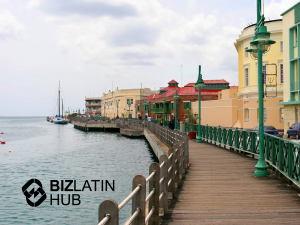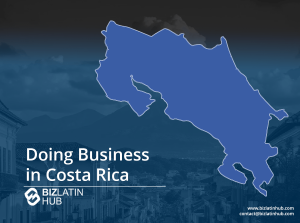Colombia’s economy is one of the strongest in Latin America, thanks in part to its natural resources (coffee, oil, coal), the size of its domestic market, and the influential growing middle class. This gives it the edge it needs to be a key player in different industries on the rise in the country. One market trend we have had our eye on is the growth of the Colombian hotel industry. Here, we outline the recent history of Colombia’s economic growth, the reason the industry is growing, and the opportunities and incentives for those looking to invest in Colombia.
Brief Overview of Colombian Hotel Industry
Although Colombia has experienced an economic slowdown due to the drop in oil prices and has tightened its budget in order to reduce inflation, the situation is stabilizing as the country increases public infrastructure projects and sees a growth in private investment.

In various industries, the economic gains to be capitalized on are impressive while Colombia makes the comeback so many have been waiting for. This positive outlook is evident in the increase in the amount of hotels being erected in light of the growing tourism and stability in the country.
The hotel industry boom is directly related to the recent surge in tourism that the country has experienced in the last few years. This offers advantageous opportunities in the industry that many are making the most of. Here, we briefly explain the reason for this surge, and more importantly, why you don’t want to wait till the last minute to make your reservation at the oasis of prosperity awaiting this growing economy.
Casa Milo in Getsemaní, Cartagena is a perfect example of the evolution of the hotel industry in the country.
Tourism Boom in Colombia = More Hotels
According to the Colombian Ministry of Tourism, in 2015 almost 2.5 million foreign tourists traveled to Colombia, a number representing a 12% increase from 2012.
Some of the factors which contribute to the development of tourism in the country include the following:

- A Decrease in Crime Rate. This stimulates the tourism boom in certain areas such as Bogotá, Cartagena, and Medellín. This has been reinforced by the peace negotiations by President Juan Manuel Santos in 2012.
- Devaluation of the Colombian Peso. A weak Colombian Peso means more purchasing power for foreign tourists.
- Connectivity. Colombia finds itself in close proximity to large traveling markets like Brazil and the U.S. Located just 3 hours from Miami, Florida, and having had 52 airport expansions in 2016, Colombia makes itself easily accessible to all who want to enjoy its wonders.
Colombia Hotel Investment Incentives
Over the past few years, Colombia has positioned itself as one of the most favorable places to do business in Latin America. According to ProColombia, the country opened 22 new hotels in 2016. Encouraging this industry investment are a number of favorable tax and legal incentives for those wanting to build hotels in the coming years. Some of these include:
- All hotels built before 2018 will have income tax exemption for the next 30 years.
- Tax duty exemptions and VAT postponements for all capital goods in tourism exports.
- Tax discounts for investors who hire employees that are under 28, handicapped, displaced, or are women over the age of 40.
The Colombian hotel industry attracts investors from all around the world to thriving cities like Bogotá and Cartagena. These two dynamic cities hold large amounts of wealth due in part to foreign buyers and business investors making the most of the tourism boom in Colombia.
Work with Trusted Experts if You Want to Do Business in Colombia
We’re here to support your expansion and ease of doing business in Colombia, even during challenging times such as these.
Through our suite of multilingual market entry and back-office services, we can enable business continuity in Colombia. This includes legal, accounting, taxation, and PEO services in Colombia.
For more information and personalized assistance, contact us now or visit our website at bizlatinhub.com.
Learn more about our team and expert authors.





